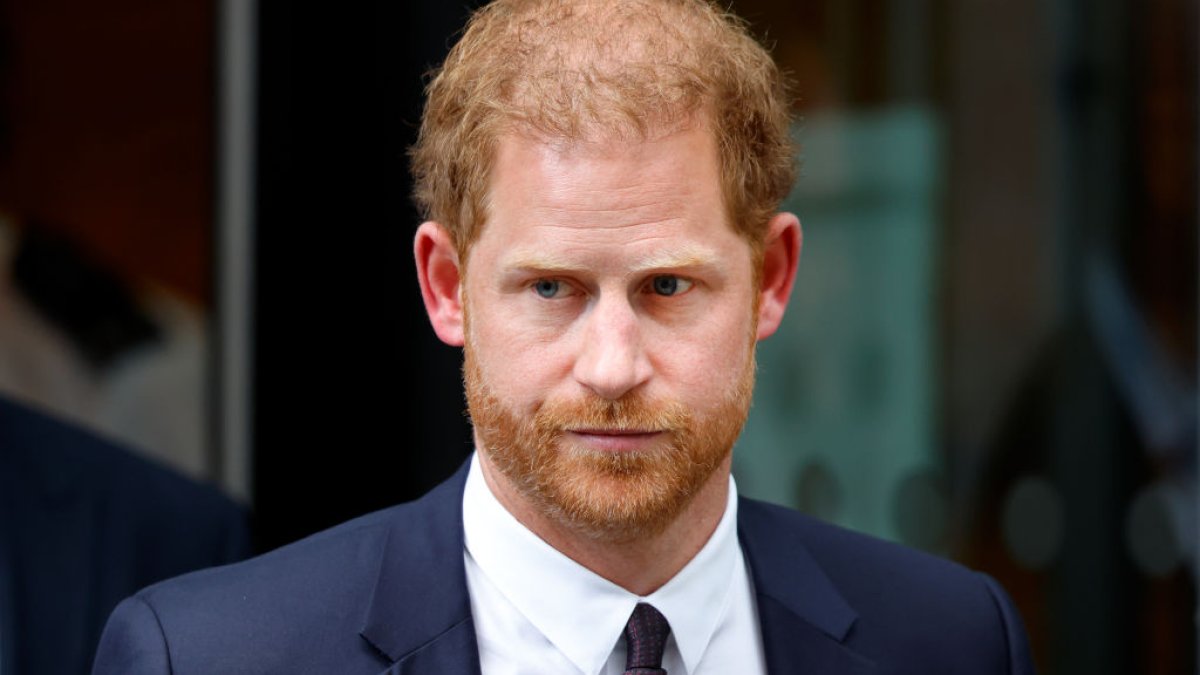The earlier drug use that Prince Harry detailed in his explosive memoir ought to spark the launch of his immigration paperwork, a conservative American believe tank argued in a Washington court Tuesday as they appealed to a decide for a more rapidly response a records request the U.S. govt has so much deemed non-public.
The hearing performed out, coincidently, as the Duke of Sussex himself testified London in another lawsuit he submitted in opposition to British newspapers. In Washington, U.S. District Decide Carl Nichols advised the Heritage Foundation and the Section of Homeland Protection to get the job done on the speed of the response, and he would rule if they could not get to an arrangement on their have.
Harry moved to Southern California with his wife Meghan Markle and their youthful relatives in 2020 right after they left royal lifestyle and embarked on new assignments, together with the launch of his memoir “Spare” in January.
The book’s myriad revelations provided an exploration of Harry’s grief soon after the demise of his mom, Princess Diana, disputes with his brother William and his earlier drug use. Harry reported he took cocaine many moments starting up close to age 17, in order “to truly feel. To be various.” He also acknowledged applying hashish and psychedelic mushrooms.
The U.S. routinely asks about drug use on its visa purposes, and it has been connected to travel complications for celebs, like chef Nigella Lawson, singer Amy Winehouse, and design Kate Moss. But acknowledgement of previous drug use would not always bar folks from getting into or being in the nation.
With that historical past in thoughts, the conservative Heritage Foundation sent a community-info ask for to the Department of Homeland Stability for Prince Harry’s immigration records.
They argue there is “intense general public interest” in irrespective of whether Harry acquired special therapy throughout the application method. The politically conservative team also connected those questions to broader immigration troubles in the U.S., such as at the southern border with Mexico.
“What this situation is really about is DHS,” stated Samuel Dewey, a attorney for the Heritage Basis.
The request has mostly been denied because the group would not have Prince Harry’s authorization to get the personal info.
“A person’s visa position is private,” mentioned John Bardo, an legal professional for the Office of Homeland Security.
The agency’s plan does allow for the release of information about concerns of community fascination, but the company argued that media protection of how Harry’s drug use connects to his visa position in the U.S. has not been popular amid mainstream American publications.
The concerns that have been lifted, meanwhile, usually are not the variety of weighty queries about doable authorities misdeeds that warrant the rapidly processing the Heritage Foundation is inquiring for, federal lawyers argued.
A representative for Harry did not right away reply to an e mail information searching for comment.
While two of the 3 agencies concerned have denied the ask for, Division of Homeland Security headquarters has not formally responded and is combating the foundation’s thrust to act speedily. Nichols expressed annoyance at remaining asked to make your mind up the narrow query irrespective of whether to order a fast reaction, but claimed he would rule if the two sides couldn’t come to an settlement on their have within a week.
Privateness is also at the middle of the lawsuit Harry submitted in opposition to the publisher of the Day-to-day Mirror that was the subject of his testimony in London on Tuesday.
That suit is actively playing out hundreds of miles absent in excess of 33 content articles published between 1996 and 2011. He states they were centered on telephone hacking or other unlawful snooping solutions. Harry testified that Britain’s tabloid push experienced a “destructive” job through his lifestyle, but also confronted sharp questioning from a newspaper’s lawyer about irrespective of whether he could keep in mind looking through the articles.



